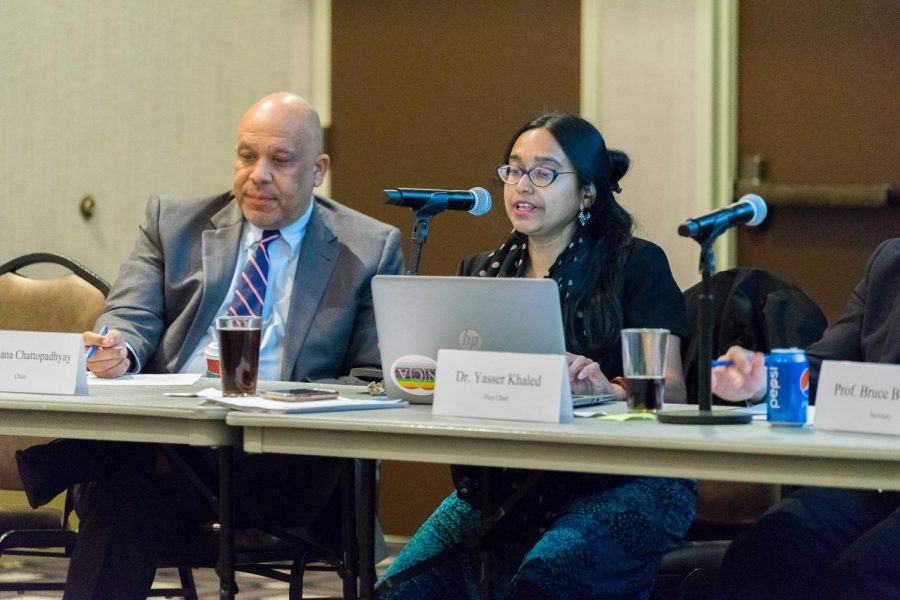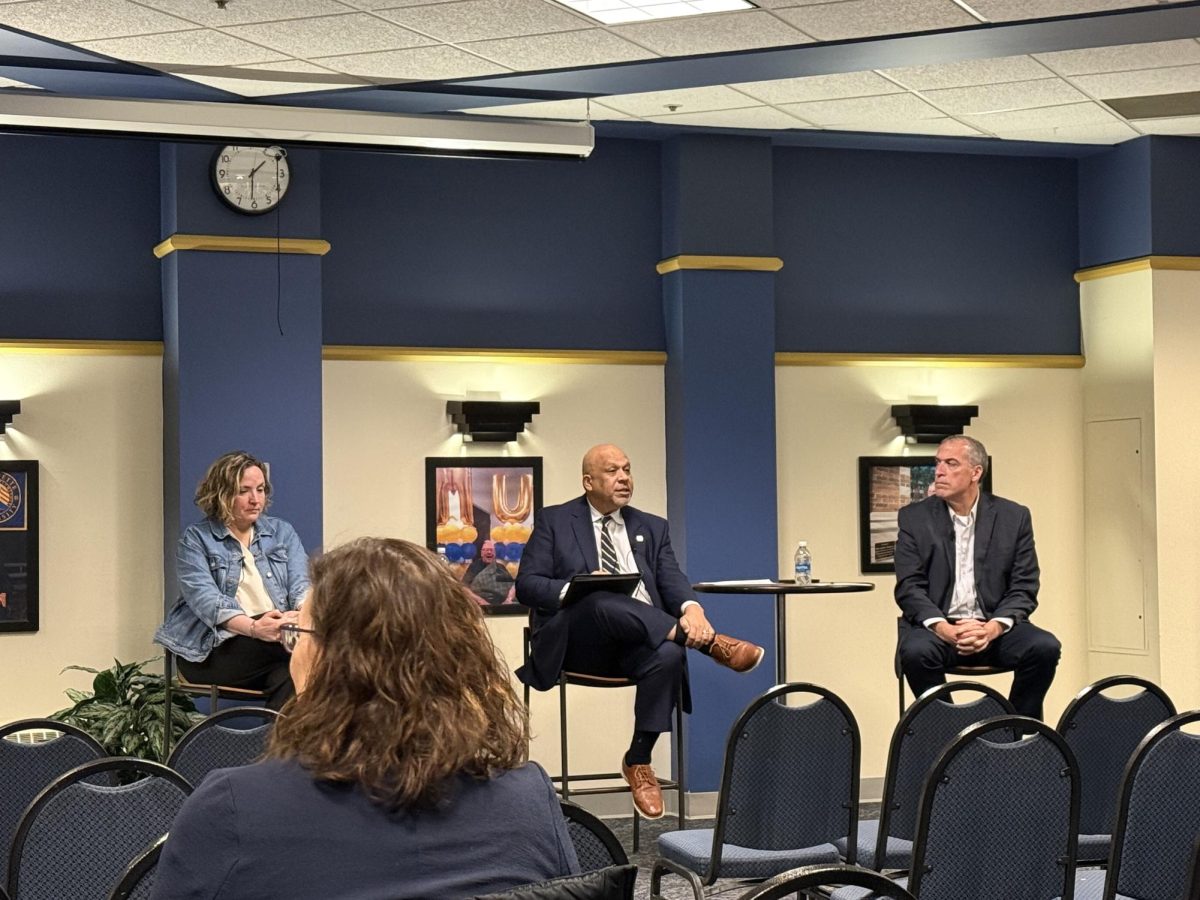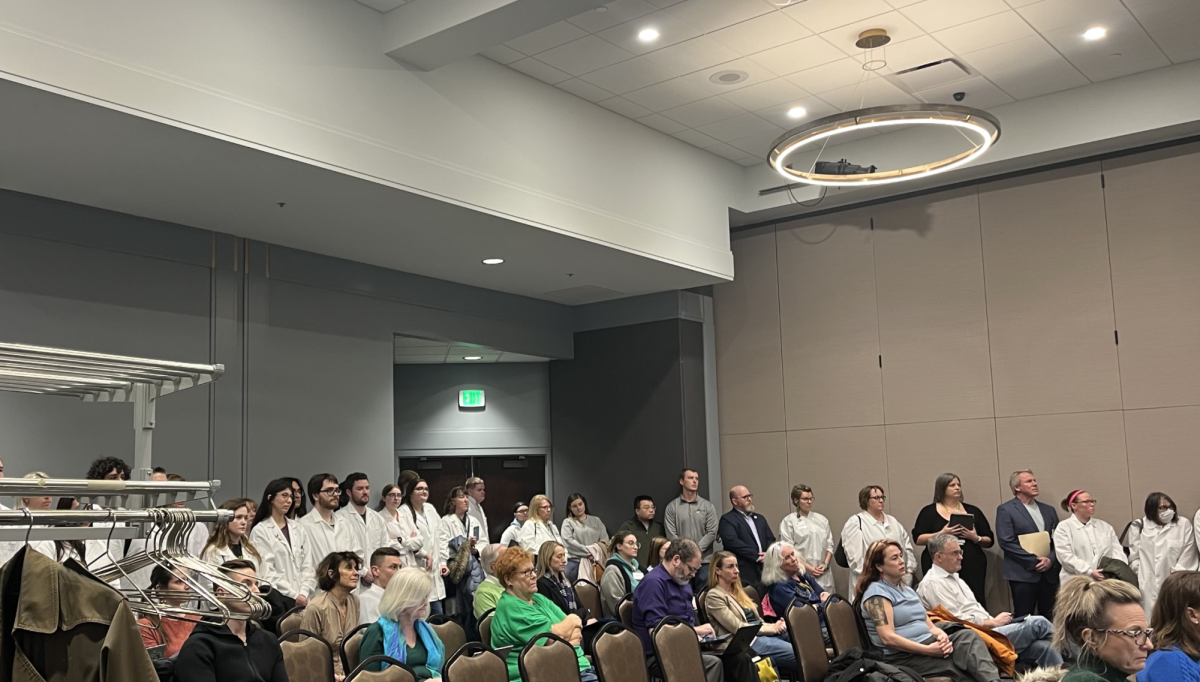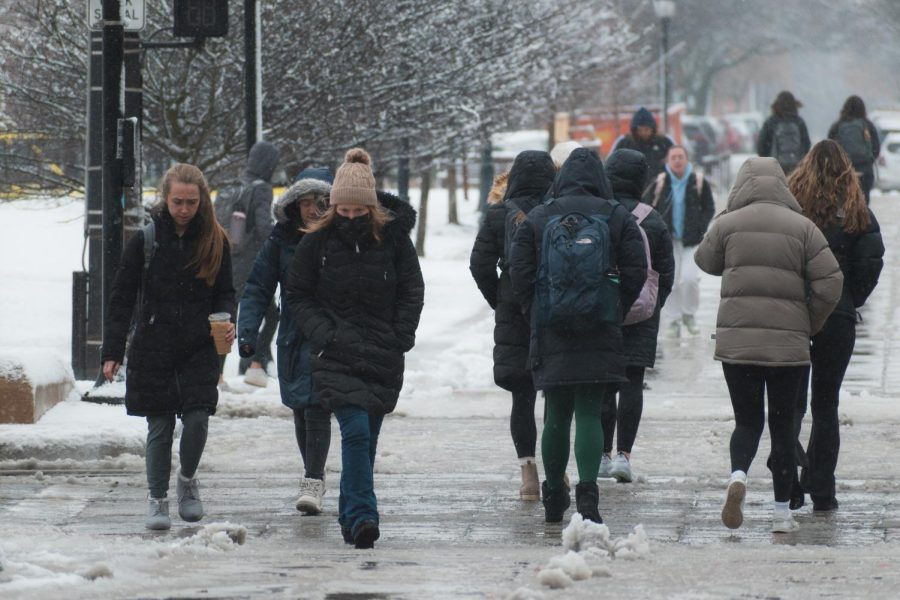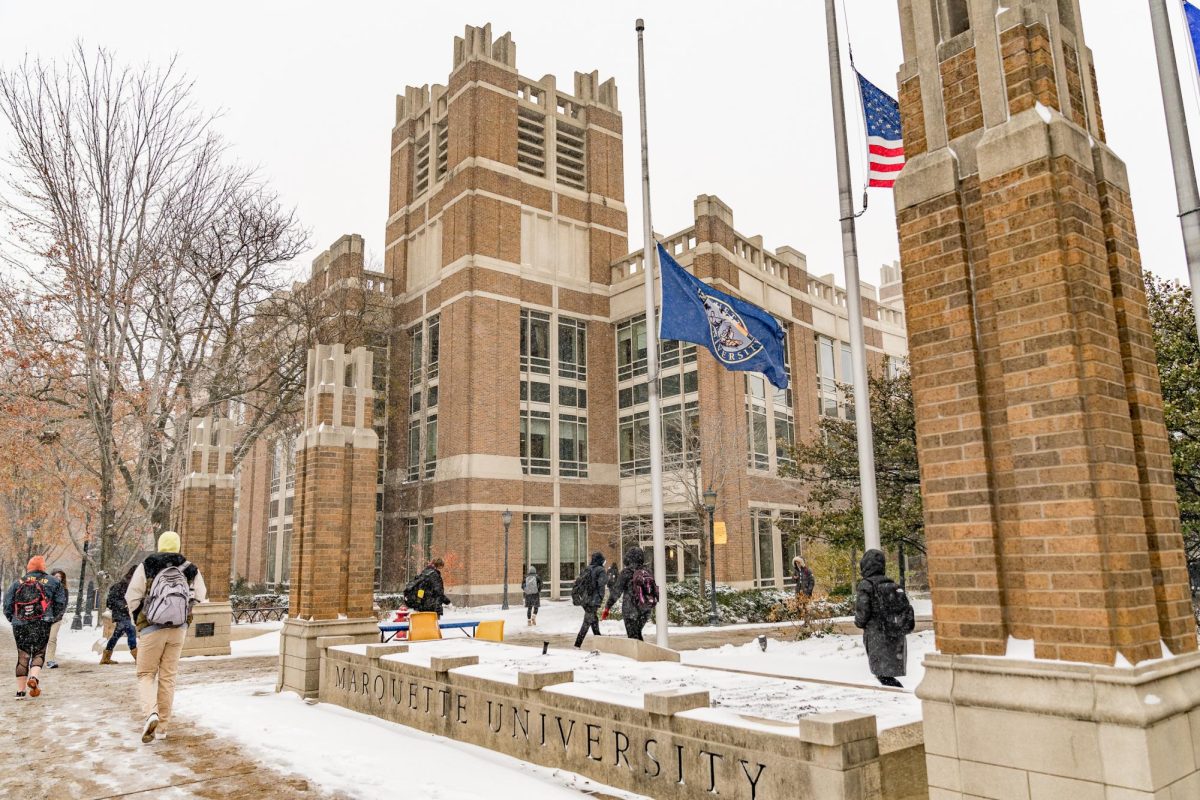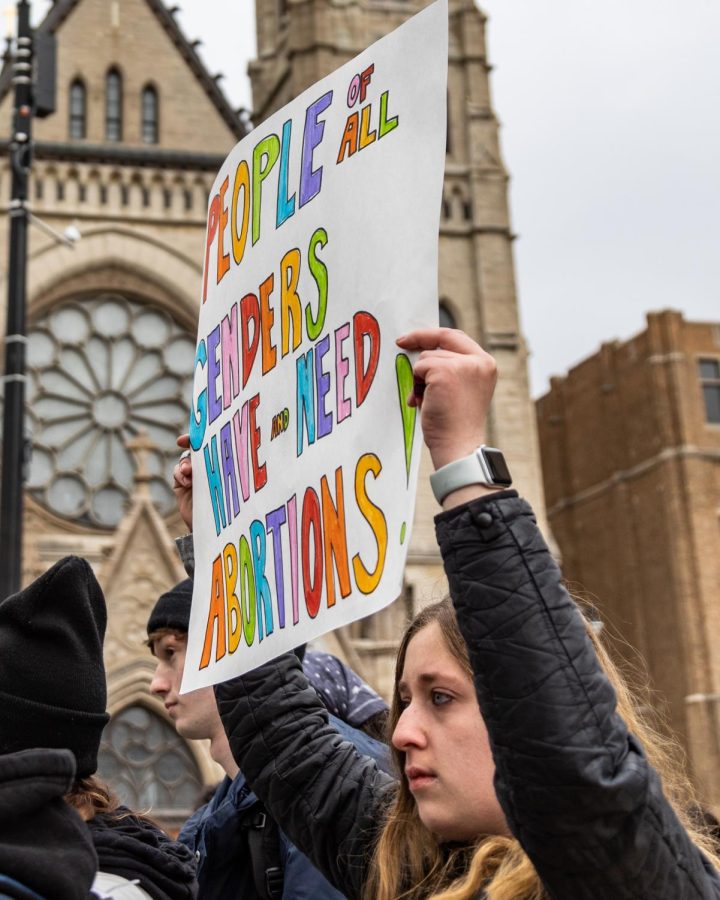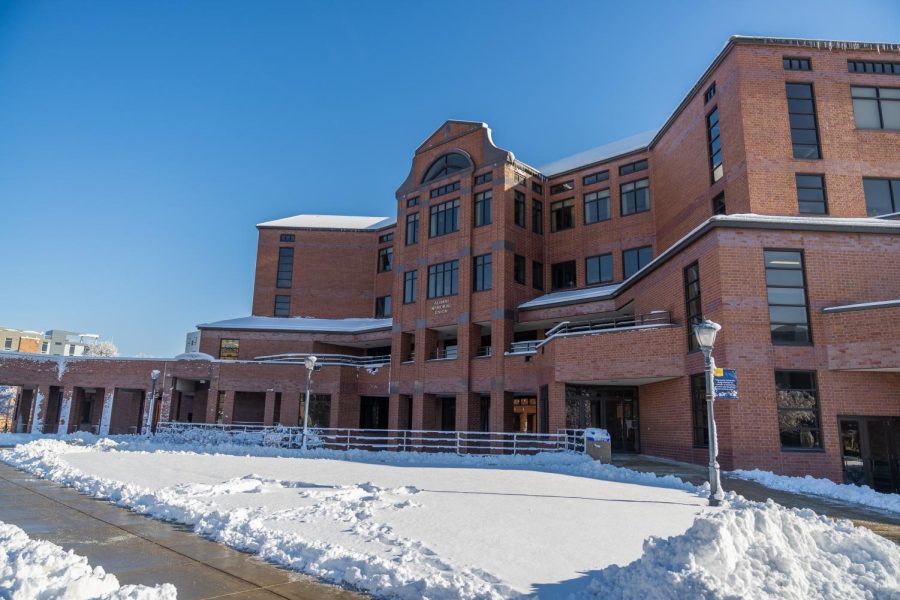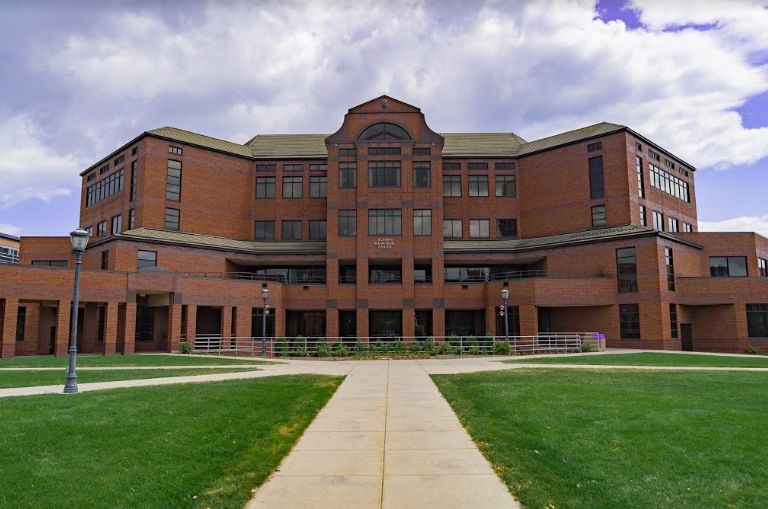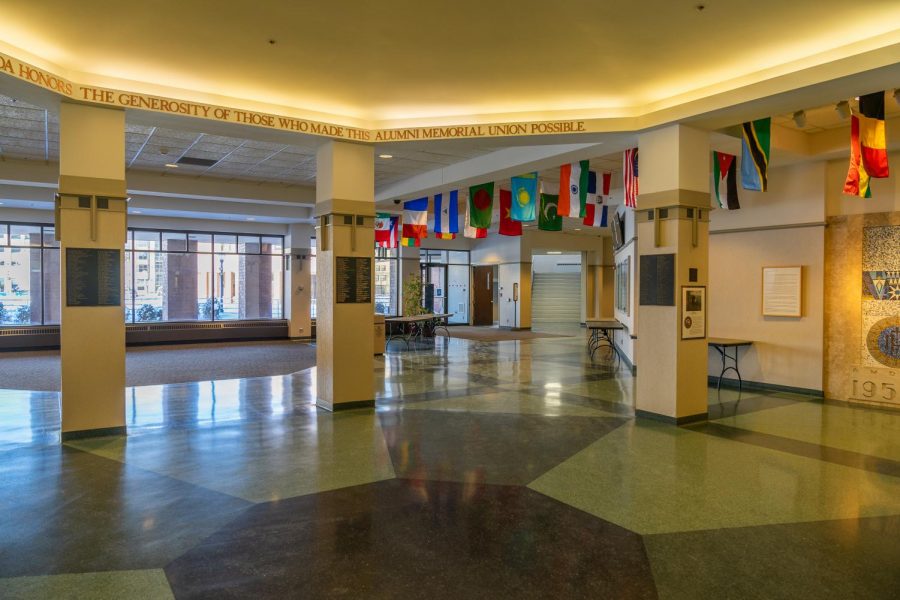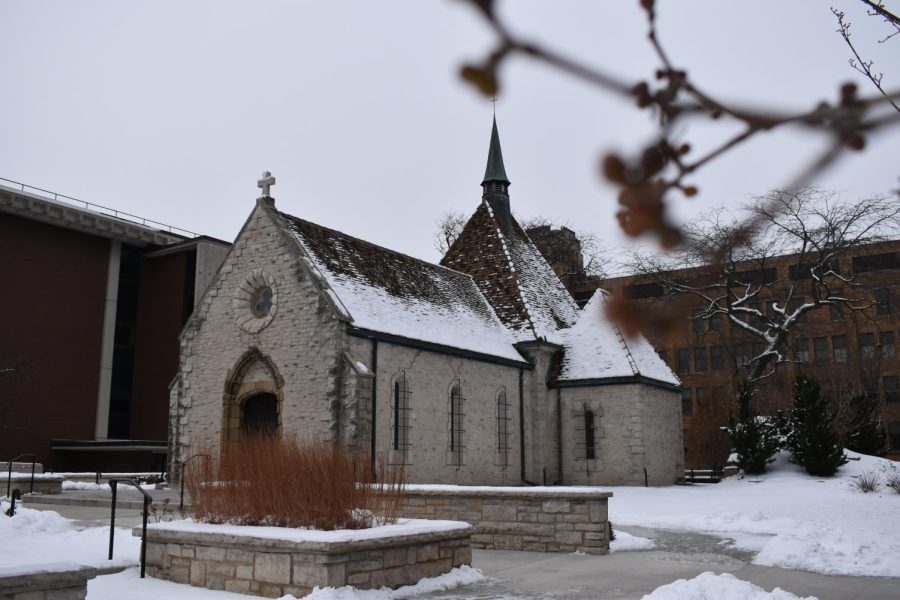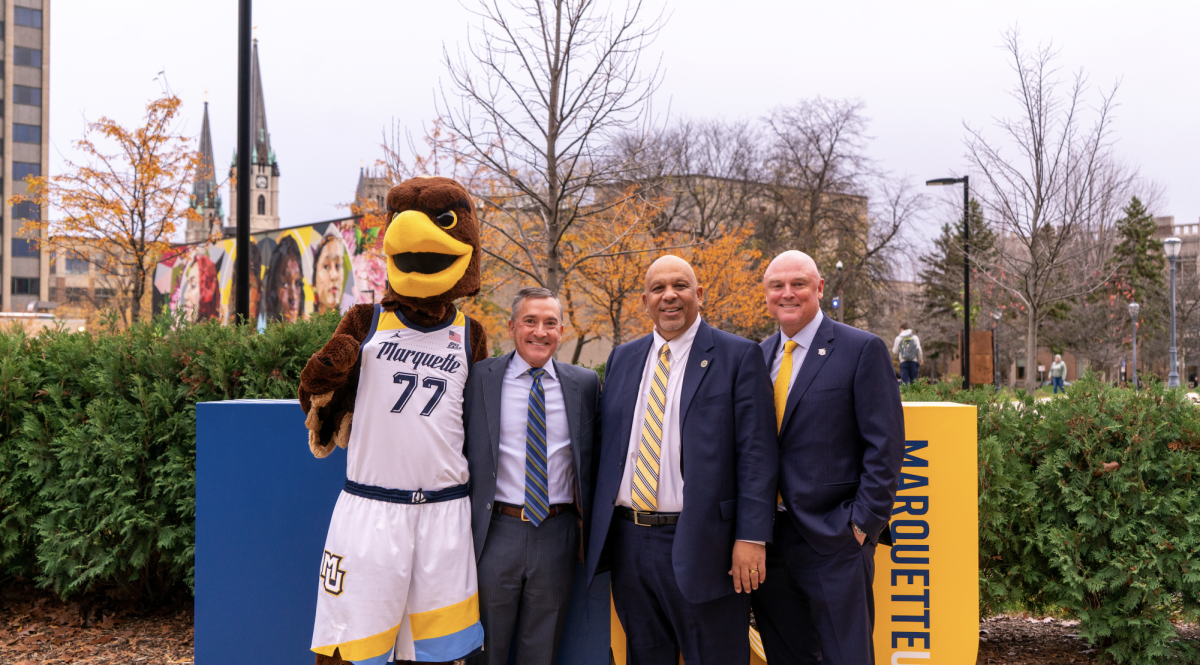The finalized university demonstration policy will be released the week of Feb. 10, along with a signage policy and a university credit card policy, Provost Kimo Ah Yun said at the monthly University Academic Senate meeting yesterday.
An updated draft of the university’s demonstration policy was reviewed at the meeting. Marquette announced in September that it would revise its demonstration document in response to the feedback of faculty, staff, students and the community.
The demonstration policy has gone through a process of changes over the past few months, facilitated by the University Academic Senate with input from the Faculty Council, University Staff Senate and Marquette University Student Government. The review process began after the demonstration policy was updated in August 2019 and faced criticism from the Marquette community.
The university previously told the Marquette Wire in August that the policy had been updated from applying solely to students to applying to faculty and staff as well.
However, Cindy Petrites, assistant provost and chief of staff, said the first demonstration policy that applied to all members of the Marquette community was a document released in May 2019.
It is unclear whether the university demonstration policy was expanded to include faculty and staff in May 2019 or in August 2019.
The Marquette Wire does not have access to the May 2019 document. It does have access to four separate demonstration policies that were released in August 2019.
After the university updated its demonstration policy in August, it received backlash from the Marquette community. Some considered the policy update to be objectionable, as it was released shortly after a faculty unionization strike and communicated within a university newsletter among other links, as previously reported by the Marquette Wire.
Multiple members of the Marquette community, including faculty and staff, had issues with the policy itself, expressing concerns that the policy was against the spirit of the First Amendment and the principle of free speech.
Following reactions, the academic senate reviewed feedback from the three campus bodies and worked to edit the policy throughout the fall semester. An updated draft was created with that feedback and revealed at the meeting in September. The academic senate provided further feedback to create the most recent draft that was discussed at Monday’s meeting.
According to the current policy on Marquette’s website, every demonstration must have a designated student, faculty or staff member to serve as “Organizer/Liaison” and meet with the dean of students to receive permission. Additionally, demonstrations may not occur inside any buildings other than pre-approved areas of the Alumni Memorial Union.
Academic senate chair and associate professor of digital media/performing arts Sumana Chattopadhyay said the current online policy was last publicly updated in August 2019. However, the current version differs from the most recently released demonstration policy document, dated Aug. 27. It also differs from the other three policy documents released in August.
Differences between the current online version and the August versions include the addition of the requirement that a potential demonstration’s “Organizer/Liaison must meet with the Dean of Students or designee to coordinate the planned Event.”
Chattopadhyay reviewed the most recent changes to the document at Monday’s meeting, reading each individual change aloud. Several of the changes that Chattopadhyay said were additions are not present in the current online version of the policy but are present in the Aug. 27 version.
For instance, Chattopadhyay said that where the policy previously said “the organizer must contact the Dean of Students office” to coordinate a demonstration, the updated draft now specifically lists the different individuals a demonstration organizer must email depending on whether they are a student, faculty or staff member.
However, the Aug. 27 version contains the exact instructions that Chattopadhyay said were new additions to the draft.
Monday’s draft does contain changes that differ from both the online and Aug. 27 versions. For example, the draft eliminated a statement that university representatives may take video of demonstrations and that their presence must not be viewed as actions to deter any demonstration. The draft also provides a definition of public property, an addition that Chattopadhyay said was added for clarification.
Additionally, underneath the category listing prohibited actions, there was formerly a statement mentioning “disrupting order” that has now been replaced by a statement that says an action is prohibited if it “fails to respect the human dignity of participants and non-participants.”
After explaining the changes made to the current draft, Chattopadhyay informed members of the senate that they have one week to email any concerns they have or edits they wish to make on the document to be taken into consideration. Petrites said final input on the draft is due Feb. 3.
Chattopadhyay emphasized that this draft was the result of a culmination of three different bodies on campus with different ideas.
“I know that there was a general idea that some people didn’t want the policy at all — a lot of faculty didn’t — but right now … this is the policy that has come out of feedback from everybody,” she said.
This story was written by Kelli Arseneau. She can reached at kelli.arseneau@marquette.edu.

